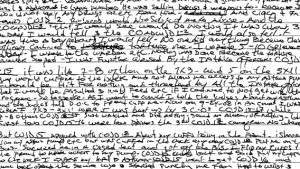By Stephon Johnson. Excerpted from the New York Amsterdam News.
 On Tuesday morning, New York City Councilman Daniel Dromm introduced two new bills addressing the issue of solitary confinement in New York City jails. Joined by advocates from the Jails Action Coalition and parents of people currently incarcerated, the group called on the Board of Correction to adopt rules regulating the use of solitary confinement.
On Tuesday morning, New York City Councilman Daniel Dromm introduced two new bills addressing the issue of solitary confinement in New York City jails. Joined by advocates from the Jails Action Coalition and parents of people currently incarcerated, the group called on the Board of Correction to adopt rules regulating the use of solitary confinement.
“I agree with the experts that [say] solitary confinement should rarely, if ever, be used,” stated Dromm. “When I toured Rikers Island last year, I saw the conditions under which inmates are exposed. It is not a surprise that the United Nations Special Rapporteur on Torture has highlighted the inefficacy and inhumanity of solitary confinement and called for its end.”
The first bill requires comprehensive reporting of data on “punitive segregation,” as the Department of Correction (DOC) refers to solitary confinement. The second bill is a resolution calling for the end to the practice of placing individuals returning to jail into punitive segregation to complete time owed from the previous period of incarceration.
The DOC expanded its punitive segregation capacity 27 percent in 2011 and 44 percent in 2012. New York City currently has one of the highest rates of solitary confinement in history, and the DOC has more punitive segregation cells than it did in the 1990s.
Jennifer Parish, director of criminal justice advocacy at the Urban Justice Center Mental Health Project, called punitive segregation a threat due to the damage it inflicts on inmates…
Read the rest of the article here.


Follow the #HALTsolitary Campaign